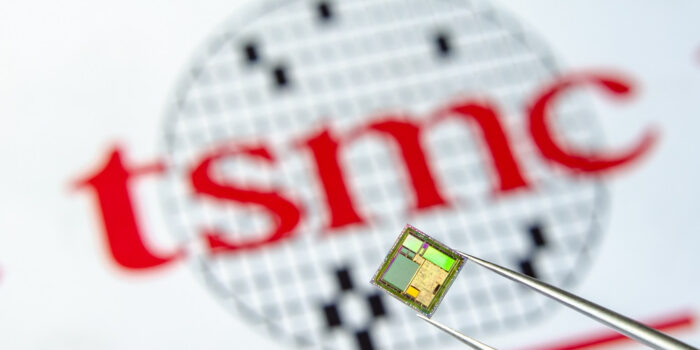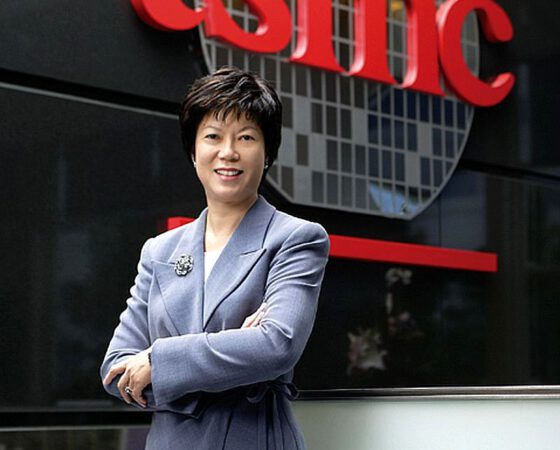Strong global demand for semiconductor chips, in some cases exacerbated by the former U.S. administration’s sanctions against Chinese chip companies, are precipitating an expansion in production capacity amongst Greater Chinese and Asian chip firms in an attempt to plug a supply gap.

As reported in Reuters on 8th Feb 2021, the global chip shortage is being acutely felt in particular by automotive manufacturers, from General Motors to Stellantis and Honda Motor, who are shutting assembly lines due to the shortages. Some auto firms have also furloughed staff.
Eight-inch chip manufacturing plants owned mostly by Asian firms, which tend to make older, less sophisticated chips, are particularly under strain primarily due to under-investment in recent years. The majority of such factories are used to make auto chips.
Consumer demand in China, especially for cars, has snapped back unexpectedly quickly from the coronavirus crisis. Further, orders for products such as laptops and mobile phones in regions such as Europe and the U.S., who are still struggling with ongoing COVID pandemic restrictions, have also picked up, all of which means that semiconductor companies in China and Asia look to be in for a busy time as we look forward to the Year of the Ox.
Fundamentally, the uptick being seen in auto sales in China, in both EVs and ICE, is having a real impact on chip manufacturers in the region.
The global concerns about the chip shortage were underscored at recent quarterly earnings calls held by companies from Taiwan Semiconductor Manufacturing Co Ltd (TSMC) to South Korea’s SK Hynix.
The aforementioned “inch size” refers of course to the diameter of the wafers, not the size of the actual chips. Some years ago, the industry moved a lot of production to 12-inch (more accurately 300mm) wafers, for reasons of greater economies of scale, and not because these are better suited to more sophisticated chips.
A Dec 2020 report says that China’s top chipmaker Semiconductor Manufacturing International Corp, SMIC, is setting up a subsidiary called SMIC Beijing, in cooperation with China Integrated Circuit Industry Investment Fund II and Etown Capital, for the production of 12-inch wafers. Services will include chip design and packaging and test. According to SMIC, the establishment of the subsidiary can help the company to expand its production scale, reduce its production costs, and promote its sustainable development. It is estimated that SMIC’s 12-inch (300 mm) silicon wafer production capacity will reach 135,000 pieces per month when finished.
For the auto industry, 8-inch wafer supply is under the microscope. “We are under great pressure now,” said Zhao Haijun, co-CEO of SMIC, which in Dec 2020 announced plans to expand capacity by 45,000 wafers per month at its 8-inch fabrication plant this year.
New capital equipment for 8-inch production may be difficult to source now, in turn potentially driving up pricing; in this respect, sellers of used and/or refurbished equipment could do well.
Looking at the chilly trade relationship between China and the Trump administration, it’s hard not to comment on the fact that the previous adminsitration’s stance may just be coming back to haunt US car makers. While new incumbent Biden has so far maintained publicly that there will be no sudden thaw in such relations, it may be difficult to see him not making some effort at adjustment.
How long until normality resumes?
SMIC, however, cautioned that its own capacity boost would not occur quickly due to longer lead times for equipment procurement, as it grapples with supply chain disruptions caused by sanctions imposed by the former Trump administration.
“We basically have at least one video conference a day with a customer on how we can increase capacity, what adjustments we can make on products,” Zhao said.
Meanwhile, TSMC, the world’s top contract chipmaker, said it was “expediting” auto-related products through its wafer fabs and reallocating wafer capacity and now expects to lift capital spending on the production and development of advanced chips to between $25-28 billion this year, as much as 60% higher than the amount it spent in 2020.
United Microelectronics Corp (UMC), another Taiwanese chipmaker, plans to spend $1.5 billion on new equipment this year, up 50 percent from $1 billion last year, it said.
South Korea’s SK Hynix, the world’s No.2 memory chip maker, said it was speeding up plans to relocate its 8-inch facilities to China, which is expected to reduce costs, in light of the 8-inch boom. The company wants the relocation to happen “as soon as possible” rather than over an initially planned two-year period.
Renesas Electronics Corp said on Monday that it is in talks to buy Anglo-German chip designer Dialog Semiconductor for about $6 billion in cash, as the Japanese chipmaker looks to take advantage of the growing demand for automotive chips. Renesas is due to release its latest result on Wednesday.
The combination of supply shortages and surging demand has put pressure on prices. UMC expects overall chip prices to rise 4-6% this year due to supply constraints set to last for another few quarters, while Renasas told Reuters that they have been negotiating for a 15% increase on auto chips and between 10% to 20% for other chips.
Japanese companies with automotive semiconductor-related business have so far provided few details related to any shortages or how customers have been affected.
“We are working hard with semiconductor manufacturers, and the supply crunch should ease as capacity growth catches up this summer,” Yasushi Matsui, the chief financial officer at key Toyota Motor Corp part supplier Denso Corp, said last week.
Fang Leuh, the chairman of Vanguard International Semiconductor Corp, whose biggest single shareholder is TSMC, said the demand frenzy “would not last forever”.
“Sooner or later it will overheat, there will be some come down or set back.”






